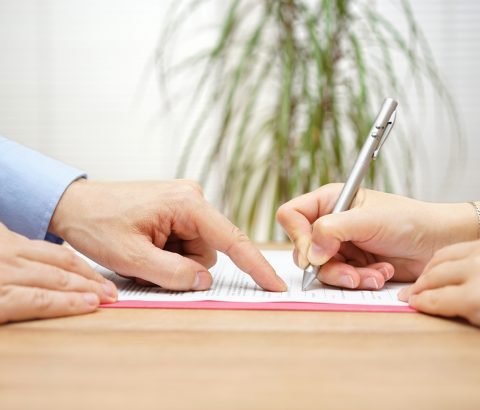How A Divorce Affects Joint Debt
Relationship breakdowns are often closely associated with financial problems, and indeed statistics show that debts can often arise or increase because of relationships coming to an end.
In Britain during 2011 more than 117,000 couples divorced* and, bearing in mind that divorce is so often a costly procedure, it’s reasonable to assume that this put many of the people involved into some sort of financial trouble.
The following can be reasons why relationship breakdowns have a direct effect on debt.
Cost of divorce proceedings
According to the Legal Ombudsman the average cost of a divorce between April and December 2012 was £13,000; the cost of course depends on the level of complexity involved. This is a very real reason why debts may occur during divorce; very few people have £13,000 in the bank to pay legal fees etc. People getting divorced usually want it sorted quickly and so understandably turn to credit to fund the divorce. This initial debt may increase because of the changes that arise once divorced.
Sudden drop in income
Divorce usually leads to a change in living arrangements. Many become financially independent and find they have to find accommodation alone. When making the transaction from living jointly to living alone, bills can be surprisingly high, very rarely would food bills and utility bills be 50% of the joint amount.
Depending on the individual circumstances, many may need to use credit cards, loans or overdrafts to pay for rental deposits, new furniture, vehicles and general living costs. Money saving tips and income maximisation can also help to minimise the affect of the divorce on the household income.
Treating the children
Whenever children are involved during relationship breakdowns it can be very stressful and upsetting for all. Parents may want to treat their children to minimise the stress caused by the relationship breakdown and all too often this involves spending large sums of money, for expensive toys, holidays or days out. When these treats are brought using credit facilities, it can lead to the level of debt increasing further.
Overspending to boost esteem
Any relationship breakdown either a marriage or a short-term relationship, can affect spending habits. Spending on luxuries can increase in an attempt to boost self-esteem.
Change in lifestyle
Anyone who has gone from being part of a couple to a singleton will experience a lifestyle change, which could lead to increased spending, such as increased socialising. Going out with friends is a great way to help get over a break up but it can unfortunately have an effect on the bank balance.
If existing debts are in sole name full payments will be down to that individual
Debt can sometimes be taken out in one name but people may actually consider it joint because repayments are made together. During a relationship breakdown the person whose name is attached to the debt will be solely liable for the repayments. This may cause the liable person to slip into more debt, as they can’t afford the contractual payments alone. For more information see joint and several liability.
“Debt can even be a cause”
Our research shows that over 80% of people wouldn’t tell their partners about the true extent of their debt – the main reasons being they were embarrassed and worried by how their partners might react. The stress involved with repaying large debts and the secrecy of one hiding the amount of debt can have a negative impact on your relationship. We advise you don’t deal with debt alone – whether that’s telling your partner or by contacting a debt adviser. If you decide to contact PayPlan we can talk you through what help might be available so you don’t have to keep struggling – we can help recommend some solutions that will help you to get back on your feet.
Contact PayPlan today by calling us on 0800 316 1833 or by requesting a callback using our debt help form.


